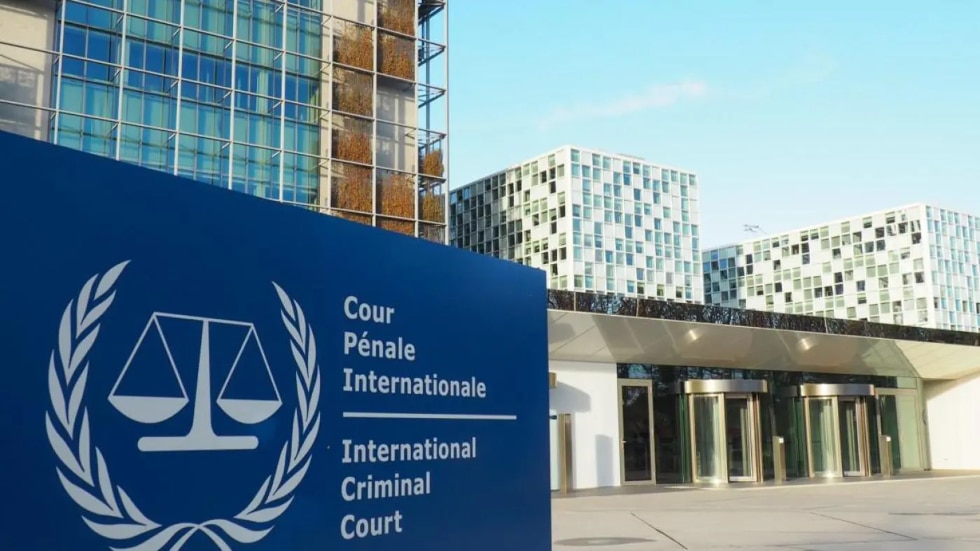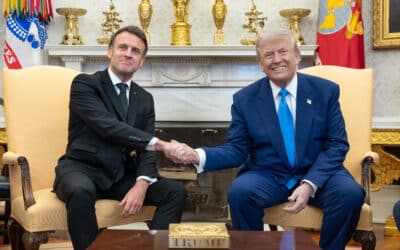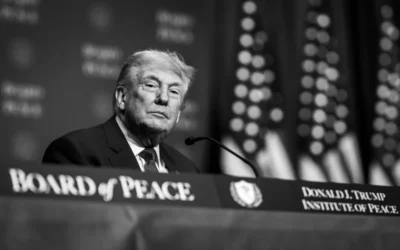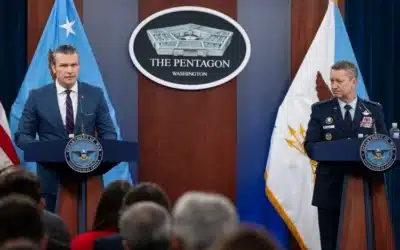In the first international charges issued since Russia’s invasion of Ukraine began, the International Criminal Court (ICC), based in the Hague, issued arrest warrants for Russian President Vladimir Putin and another Russian official over the alleged kidnapping and unlawful deportation of Ukrainian children as well as teenagers, Axios reported on Friday.
An arrest warrant for Maria Alekseyevna Lvova-Belova, Russia’s commissioner for children’s rights, was issued over similar allegations. According to a report published last month by Conflict Observatory, a program supported by the US State Department, Moscow is accused of “systematically [relocating] at least 6,000 children from Ukraine to Russia.” The report further claims many of these children were then taken to camps or other facilities where they received so-called “pro-Russia reeducation.” Some such facilities are said to be “used for foster care or adoption” in Russia and the Crimean peninsula, which Moscow annexed in 2014 after a violent US-backed coup in Kiev.
Moscow has been working to evacuate residents from Russian controlled areas and elsewhere in Ukraine throughout the war, including during the lead up to the invasion when Kiev massively escalated its shelling of the Donbas. According to the UN, Kiev’s war against the breakaway republics which preceded Moscow’s invasion resulted in the deaths of thousands of civilians.
Russia is accused, however, of carrying out forced deportations or the forcible transfer of civilian populations from occupied land, which is outlawed by the Rome Statute which established the ICC. Neither Russia, Ukraine, nor the United States, are parties to the Rome Statute. Yet ICC President Piotr Hofmanski told Al Jazeera that he feels this is “completely irrelevant.” He added, “…the court has jurisdiction over crimes committed in the territory of a state party or a state which has accepted its jurisdiction. Ukraine has accepted the ICC twice – in 2014 and then in 2015.”
The contents of the warrants are being kept secret, ostensibly to protect the identities of the victims. Nevertheless, Hofmanski said “the judges of the chamber decided with this case to make the existence of the warrants public in the interest of justice and to prevent the commission of future crimes.”
Officials in Kiev celebrated the issuance of the warrants. Ukrainian Foreign Minister Dmytro Kuleba proclaimed Putin and Lvova-Belova “will be held accountable for stealing children.” Ukrainian Prosecutor General Andriy Kostin enthused that the “world received a signal that the Russian regime is criminal and its leadership and henchmen will be held accountable.”
The ICC has no police force or any way in which to carry out arrests. When asked if Putin should be arrested, Hofmanski claimed “[state parties have a legal] obligation to arrest a person in respect to arrest warrants issued.”
Though the fanciful idea of Putin’s capture and prosecution at the Hague is virtually inconceivable. Russian Ministry of Foreign Affairs spokeswoman Maria Zakharova argues “Russia is not a party to the Rome Statute of the International Criminal Court and bears no obligations under it.” She also said the court’s decisions have “no meaning for our country, including from a legal point of view.” Kremlin spokesperson Dmitry Peskov called the warrants “null and void.”
For her part, according to Russian-state media, Lvova-Belova thanked the international community for acknowledging her efforts to rescue children from a war zone.
Russia’s response is not surprising, as Washington does not recognize the court either. For instance, in 2002, George W. Bush signed into law a piece of bipartisan legislation called the American Service-Members’ Protection Act. The law, informally known as the “Hague Invasion Act,” allows the President to order military action against the Netherlands – a fellow founding member of NATO – to protect US soldiers and officials accused of war crimes from ever being prosecuted or taken into custody by the ICC.
During the Donald Trump administration, the US sanctioned ICC officials for attempting to investigate American war crimes committed in Afghanistan. Former Secretary of State Mike Pompeo charged the court is an “unaccountable political institution masquerading as a legal body.”
In 2021, the Joe Biden administration lifted those sanctions but railed against the ICC’s efforts to look into war crimes committed by US soldiers in Afghanistan as well as the massacres of thousands of civilians perpetrated by Israeli forces against Palestinians in the besieged Gaza Strip. Israeli Prime Minister Benjamin Netanyahu dubbed the ICC’s decision “pure antisemitism” and demanded Biden maintain the Trump-era sanctions.
Earlier this month, the New York Times reported that although the White House, State Department, Justice Department, and intelligence agencies favored providing information on alleged Russian war crimes to the ICC, the decision to do so was blocked by the Pentagon over concerns that a precedent could be set for US troops to be prosecuted for similar actions.
The timing of the arrest warrants may stifle potential Chinese brokered peace negotiations which could begin soon as President Xi Jinping is set to meet separately with Putin and Ukrainian President Volodymyr Zelensky during the coming weeks. Beijing recently released a 12-point peace plan which focuses on achieving a ceasefire, launching negotiations, respecting national sovereignty, stabilizing supply chains, ending unilateral sanctions, addressing humanitarian crises, and reducing strategic risks.
When Hofmanski was asked by Al Jazeera if he was concerned these warrants would prolong the war and risk damaging China’s diplomatic efforts – which seem to be making some headway – he responded by saying “[t]his is a political consideration. We are doing our jobs. We are a court of law, and we are acting on the basis of the request of the prosecutor, which is an independent office, and we do what is expected from us.”
This article was originally featured at Antiwar.com and is republished with permission.

































